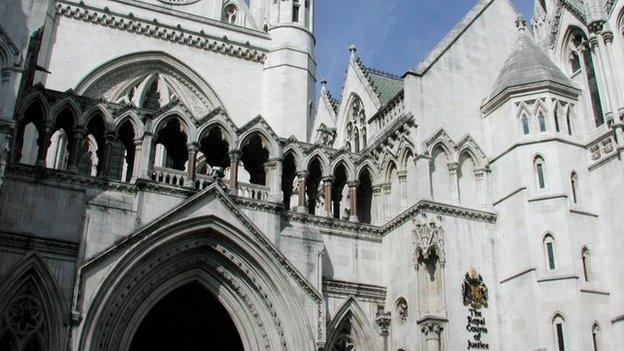Terror trial: Suspect 'had Tony Blair's address'
- Published
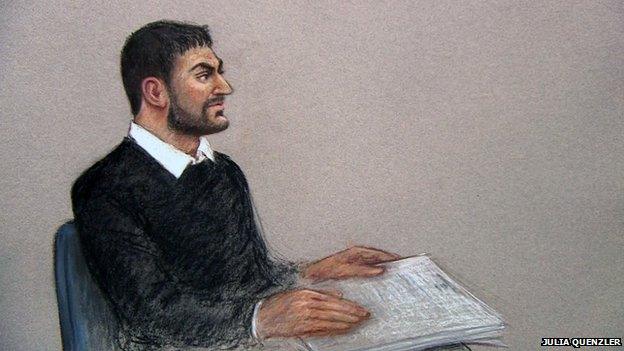
Part of Erol Incedal's trial will be held in secret
A terror suspect was considering an indiscriminate Mumbai-style attack and had an address for Tony Blair and his wife, Cherie, the Old Bailey has heard.
Erol Incedal plotted to attack a "significant individual" or killings similar to the 2008 Mumbai attacks, which left 174 dead, prosecutors said.
He also had a phone containing material supporting Islamic State, they added.
Mr Incedal, 26, from London, denies preparing for acts of terrorism. He is being tried partly in secret.
The jury heard Mr Incedal had no settled plan of attack. But the prosecution suggested the possession of the Blairs' address was significant.
'Coded messages'
Prosecutor Richard Whittam QC said the prosecution believed Mr Incedal was planning an attack on "a number of individuals, an individual of significance or an... indiscriminate attack such as that in Mumbai in 2008."
He added: "Count 1 does not suggest that Erol Incedal had settled on a specific target or a particular methodology but in the context of the case as a whole and the evidence that I am going to come to, you may think that this address does have some significance."
The court was later told of email messages between Mr Incedal and an unknown correspondent.
An alleged coded word referred to "k 11 22 aaa shhh", which prosecutors say may have referred to Kalashnikov rifles.
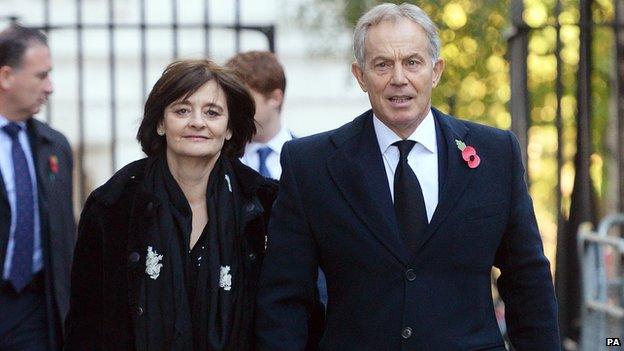
An address for Tony and Cherie Blair was found in Mr Incedal's car
Another, which mentioned "mo88m 55bayy style", could be interpreted as Mumbai-style attack, the jury heard.
Earlier, the jury heard that Mr Incedal was initially stopped by police on 30 September 2013 and that investigators used that opportunity to place a bug in his Mercedes. He and another man, Mounir Rarmoul-Bouhadjar, were arrested weeks later in October when policed stopped their car in East London.
Mr Whittam told the jury that each man was carrying an iPhone which was held in a protective case. Between the phone and the case was a memory card which allegedly contained a document relating to bomb-making.
Last week Rarmoul-Bouhadjar pleaded guilty to possessing material useful for terrorism, the jury were told.
The court also heard an iPhone recovered during the investigation included photographs of a synagogue and material supporting Islamic State (IS) militants in Syria and Iraq.
'Unusual features'
Jurors were told on Monday that parts of the trial would never become public.
Proceedings on Tuesday afternoon are being heard behind closed doors - jurors are banned from ever disclosing what they hear.
Ten journalists will be locked in the room with them to observe proceedings. They will also never be allowed to reveal what is said during the sessions.
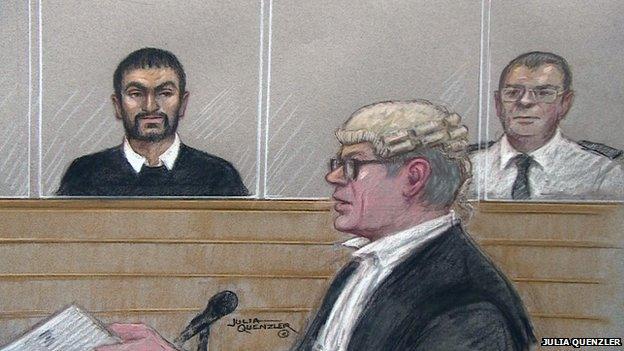
The trial will have "unusual features", the judge said
Mr Justice Nicol said: "This trial has some unusual features. The usual way that justice is administered is in public. Some of this trial will be conducted in that way.
"However, there will be other sessions of this trial that will be conducted in private. The public will not be able to attend these."
He added that there would be a third part of the trial where even those accredited journalists would be excluded from hearing the evidence.
"This is another reason why you must not talk about the private proceedings with anyone else outside of your number," said the judge.
- Published13 October 2014
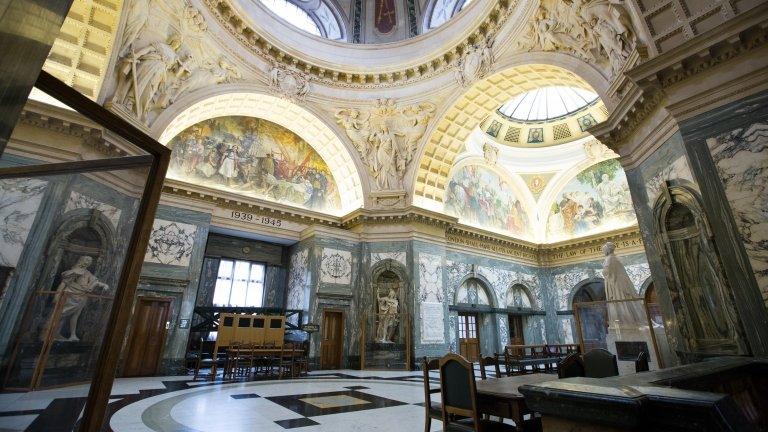
- Published12 June 2014
